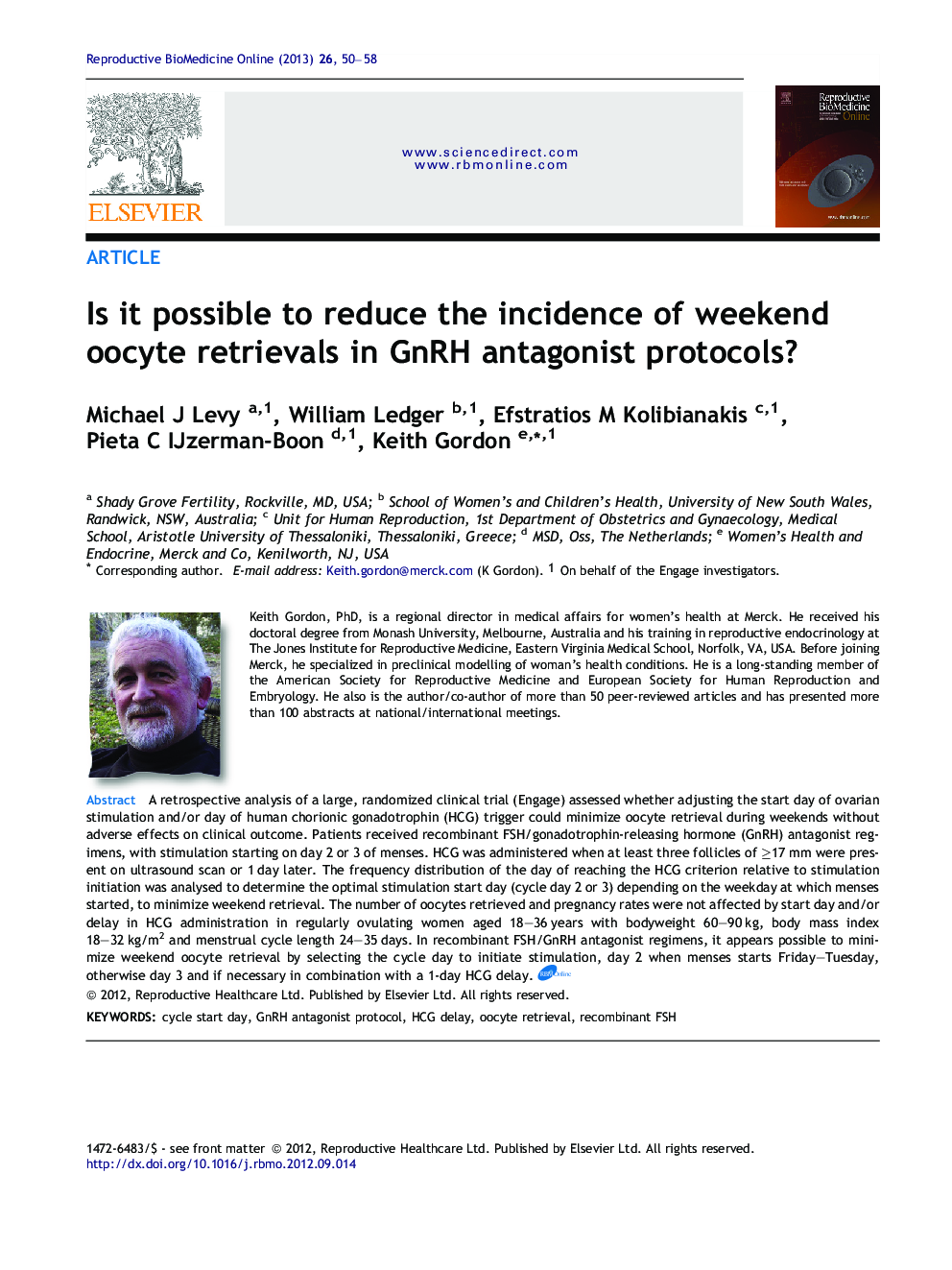| کد مقاله | کد نشریه | سال انتشار | مقاله انگلیسی | نسخه تمام متن |
|---|---|---|---|---|
| 3970604 | 1256734 | 2013 | 9 صفحه PDF | دانلود رایگان |

A retrospective analysis of a large, randomized clinical trial (Engage) assessed whether adjusting the start day of ovarian stimulation and/or day of human chorionic gonadotrophin (HCG) trigger could minimize oocyte retrieval during weekends without adverse effects on clinical outcome. Patients received recombinant FSH/gonadotrophin-releasing hormone (GnRH) antagonist regimens, with stimulation starting on day 2 or 3 of menses. HCG was administered when at least three follicles of ⩾ 17 mm were present on ultrasound scan or 1 day later. The frequency distribution of the day of reaching the HCG criterion relative to stimulation initiation was analysed to determine the optimal stimulation start day (cycle day 2 or 3) depending on the weekday at which menses started, to minimize weekend retrieval. The number of oocytes retrieved and pregnancy rates were not affected by start day and/or delay in HCG administration in regularly ovulating women aged 18–36 years with bodyweight 60–90 kg, body mass index 18–32 kg/m2 and menstrual cycle length 24–35 days. In recombinant FSH/GnRH antagonist regimens, it appears possible to minimize weekend oocyte retrieval by selecting the cycle day to initiate stimulation, day 2 when menses starts Friday–Tuesday, otherwise day 3 and if necessary in combination with a 1-day HCG delay.A retrospective analysis of the data collected from a large, randomized clinical trial (Engage) was conducted to assess whether adjusting the start day of ovarian stimulation and/or the day of human chorionic gonadotrophin (HCG) trigger could minimize the possibility of retrieving the mature egg cells during weekends, without an adverse effect on the clinical outcome. Patients were administered recombinant FSH/gonadotrophin-releasing hormone (GnRH) antagonist on either day 2 or 3 of menses in order to start ovarian stimulation. Ultrasound monitoring was subsequently performed to determine when at least three follicles of ⩾17 mm or more in diameter were present, and final maturation was induced by HCG administration either on that day or 1 day later, if necessary. The frequency distribution of day of reaching HCG criterion relative to ovarian stimulation initiation on cycle day 2 or 3 was analysed to determine the optimal ovarian stimulation day (day 2 or 3) depending on the weekday at which the menses started to minimize the possibility of weekend egg retrieval. Number of eggs retrieved and pregnancy rates were not found to be affected by day of stimulation and/or a 1-day delay in HCG administration. In a recombinant FSH/GnRH antagonist protocol, weekend egg retrieval can be minimized by selecting the appropriate cycle day to initiate ovarian stimulation (cycle day 2 when menses starts Friday to Tuesday, otherwise cycle day 3), and if necessary in combination with a 1-day HCG delay.
Journal: Reproductive BioMedicine Online - Volume 26, Issue 1, January 2013, Pages 50–58